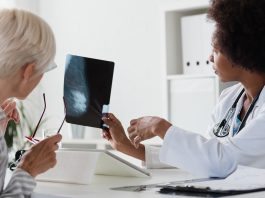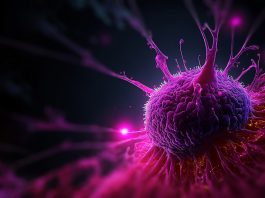A new study has inhibited a protein involved in liver inflammation to reduce fibrosis in patients with non-alcoholic steatohepatitis.
An international clinical trial has identified a promising target for patients with non-alcoholic steatohepatitis (NASH).
The researchers showed that an oral inhibitor of amine oxidase copper-containing 3 (AOC3), a protein involved in liver inflammation, successfully supressed this protein. The protein, which can lead to fibrosis, cirrhosis, and liver cancer, was supressed by the oral inhibitor, reducing liver injury.
The paper, ‘A randomised Phase IIa trial of amine oxidase copper-containing 3 (AOC3) inhibitor BI 1467335 in adults with non-alcoholic steatohepatitis,’ is published in Nature Communications.
Developing safe treatments for NASH patients
The researchers tested an oral inhibitor produced by pharmaceutical company Boehringer Ingelheim. This builds on the University of Birmingham’s work on AOC3 inhibition led by David Adams and Chris Weston.
The work validates the inhibitor as a promising target to reduce liver inflammation – showing that it benefits fibrosis in patients with NASH.
Currently, the treatments for NASH revolve around lifestyle interventions, such as weight loss and exercise. These changes reduce inflammation and fibrosis.
Pharmaceutical company Pharmaxis aims to build on the trial to develop safe and effective pharmacological treatments for NASH patients.
Phil Newsome, the leader author of the study, said: “This study provides a clear rationale for AOC3 inhibition in the management of patients with metabolic dysfunction-associated steatotic liver disease.”
About the trial
Funded by Boehringer Ingelheim, the Phase II trial assessed the safety, tolerability, and biochemical and physiological effects of different doses of oral AOC3 inhibitor BI 1467335 during a 12-week treatment period.
The team enrolled 114 NASH patients from 44 centres across Europe and North America between 2017 and 2019.
Participants were randomly assigned to one of five treatment groups. The groups included those who received at least a daily dose of BI 1467335, those who received different dosages, and those who received a placebo.
After the treatment, the team found that BI 1467335 strongly inhibited AOC3 in NASH patients. They observed that doses above a minimum threshold dependently reduced the levels of liver injury biomarkers.
The results show that AOC3 is important as a target.









